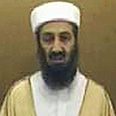
An ominous victory
Prospect of ‘Iraq alumni’ terror attacks worldwide could undermine US victory in Iraq
In his latest audiotape, which was made public this week, Osama Bin Laden urges jihadists engaged in the struggle in Iraq to cease their internecine warfare, arguing that it impedes their struggle against their true adversaries. This request to some extent corroborates the recent American declaration of victory against al-Qaeda in Iraq. At the same time, the validity of this declaration must be considered and the questions must be asked: Has al-Qaeda in Iraq in fact been dealt a mortal blow? Has the global organization been set back as well?
The American statement came in the wake of impressive successes achieved by US-led coalition forces against al-Qaeda in their principal strongholds of Anbar and Dialla. This achievement was the product of a targeted American campaign against al-Qaeda, waged with the help of local Sunni chieftains who rejected al-Qaeda's operations and joined hands with their former enemies to wage war against their former allies. Yet without undermining the US success, the question of al-Qaeda's defeat rests on an understanding of al-Qaeda's objectives, both within the Iraqi theater and outside of it.
The goals of al-Qaeda in Iraq differ widely from those of other actors in the Iraqi battlescape, such as the Sunni Baathists and the various Shiite factions. Thus, while these elements preoccupy themselves primarily with local interests in their struggle to secure control in Iraq, al-Qaeda is focused on a range of goals, including: reinvigorating the global jihad, which was severely damaged by the coalition campaign in Afghanistan; opening a new front in the heart of the Arab Levant in the ongoing war against "the Jewish crusader" coalition; preventing the fall of a Sunni Arab nation into the hands of the hated Shiites; widening the pool of volunteers for the global jihad enterprise; training new cadres and those with combat experience for the struggle that awaits them; and creating an Islamic caliphate in Iraq. To these ends Bin Laden took Abu Musab al-Zarqawi's group, along with various other factions that Zarqawi ran, under al-Qaeda's wing, which provided him with the necessary support to establish al-Qaeda in Iraq.
Al-Qaeda revival in Afghanistan
Al-Qaeda has already achieved several of its goals in Iraq, and while these may be circumscribed, they will not be reversed entirely. The global jihad has indeed been reinvigorated and been granted a new pretext and new context for its continued struggle, for new recruitment, and for accelerated training of new combatants. However, al-Qaeda's main objective, to make Iraq the heart of a new Sunni Muslim caliphate or at the very least to translate parts of the country into platforms for launching terrorist attacks has been largely thwarted. The US determination to obstruct al-Qaeda territorial ambitions is within current reach. At the same time, it is clear that al-Qaeda has and will retain at least a vestigial ability to launch attacks, including showcase attacks that would seriously challenge US declarations of victory.
Moreover, Iraq for al-Qaeda is one of many theaters whose achievements can be transplanted elsewhere. The first of these alternate arenas, which is experiencing something of a revival in the last year, is Afghanistan, where al-Qaeda fighters, supported by the Taliban, have begun to recover and exploit the topographical advantages of the terrain to launch guerilla and terrorist attacks against the Karzai regime and the coalition forces. At the same time, al-Qaeda cells are operating in Pakistan against the Musharraf government and are using Pakistani cities as training grounds for terrorist cells that are to be dispatched around the world.
The risk, then, of the inevitable phenomenon of "Iraqi alumni" who are sent to execute terror attacks all over the world, poses a serious question as to the extent of the American victory against al-Qaeda. It joins the ongoing question as to whether democracies, constrained by a variety of self-imposed, humanistic limitations, can ever forcibly overcome guerilla and terrorist outfits. These two questions suggest it would be best to focus on the expected future activity of al-Qaeda, rather than resting on the laurels of a limited victory in Iraq.
The author is a senior research associate at the Institute for National Security Studies (INSS)










